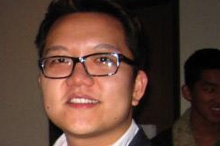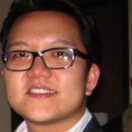

Bruce Thao is being honored as a Health in the AAPI Community Champion of Change.
My family arrived in the United States in December of 1975—greeted by winter in Iowa. Like many other Hmong refugee families, they struggled through poverty, learning a new language, and navigating a maze of systems seemingly built to keep them away from the very services they needed. My parents are proud and resilient and were able to make a better life for us despite having just survived war, refugee camps and leaving all they’ve ever known behind. It is this resilience and indomitable spirit which drives me and my work with Hmong American Partnership (HAP) and its subsidiary, Hmong National Development (HND).
Though the Hmong have come a long way having been in the U.S. for almost 40 years, we still have far to go. In 2010, 1 in 4 Hmong families lived in poverty, which is one of the highest rates across race and ethnic groups in America. In addition, the Hmong community has disproportionately low educational attainment rates and high rates of death from cancer and incidence of other ailments such as Hepatitis B, stroke, diabetes and gout. These health disparities can partly be attributed to a lack of health insurance and not receiving preventative care. By the time they are in front of a doctor they may be in stage 4 of liver or breast cancer.
When the Affordable Care Act passed, HAP and HND knew we had to get information out to our communities, particularly for the growing Hmong communities in Minnesota, California, and the South. While states like California, Minnesota and Wisconsin continue to have the highest Hmong populations (over 200,000 in these three states), we have seen an exponential increase in the Hmong population in the South (now over 20,000 Hmong in southern states). They are located in rural communities that do not have the capacity or infrastructure to provide healthcare outreach or education to the Hmong.
The majority of the Hmong in the South lack health insurance, many had never heard of the Affordable Care Act, and are illiterate in both Hmong and English. So we knew we had a tough task to tackle. In Arkansas, Missouri and North Carolina, HND conducted outreach and created relationships between Hmong community leaders, enrollment agencies and healthcare providers, identifying language assistance and interpreters where available. Through community meetings and conference lines, we connected communities across states and rural areas to educate them. To date we have provided education and outreach to over 500 Hmong farmers and families in the South that otherwise have been unreachable by mainstream agencies.
The keys to our success lie in leveraging community leaders and ethnic media and the power of word of mouth. Our history as a persecuted ethnic minority group has forced us to rely on oral tradition to carry our heritage and our identity. We utilize radio, conference lines, word of mouth and the power of story to get the word out to our communities to know that there are resources available and ways to receive healthcare. Our combined national efforts have resulted in close to 20,000 Hmong and other Southeast Asians learning about the Affordable Care Act and over 2,000 receiving healthcare coverage across the country.
Bruce Thao is Director of Programs for Hmong American Partnership (HAP) and Hmong National Development (HND).


